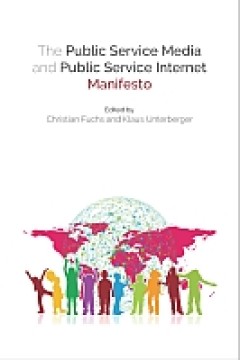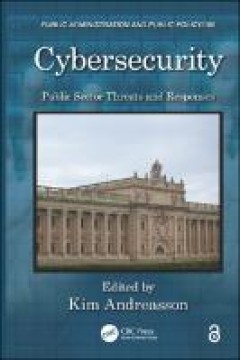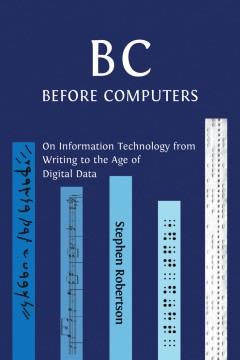Filter by

Paradoxes of media and information literacy: the crisis of information
Paradoxes of Media and Information Literacy contributes to ongoing conversations about control of knowledge and different ways of knowing. It does so by analysing why media and information literacy (MIL) is proposed as a solution for addressing the current information crisis. Questioning why MIL is commonly believed to wield such power, the book throws into sharp relief several paradoxes that a…
- Edition
- -
- ISBN/ISSN
- 9781003163237
- Collation
- xiii, 159 p. : ill.
- Series Title
- Paradoxes of media and information literacy : the crisis of information
- Call Number
- 028.7 HAI p

AI Knowledge Transfer from the University to Society : Applications in High-I…
AI Knowledge Transfer from the University to Society: Applications in High-Impact Sectors brings together examples from the "Innovative Ecosystem with Artificial Intelligence for Andalusia 2025" project at the University of Seville, a series of sub-projects composed of research groups and different institutions or companies that explore the use of Artificial Intelligence in a variety of high-im…
- Edition
- -
- ISBN/ISSN
- 9781003276609
- Collation
- 148p. ; ill.
- Series Title
- -
- Call Number
- 006.3 JOS a

Art in the global present
Art in the Global Present presents a fascinating collection of essays that together reveal how art is currently navigating a globalised world. It addresses social issues such as the impact of migration, the ‘war on terror’ and the global financial crisis, and questions the transformations produced by new forms of flexible labour and the digital revolution. Through examining the resistance t…
- Edition
- -
- ISBN/ISSN
- 9780987236999
- Collation
- 290 p.: Colour, Illustrations
- Series Title
- -
- Call Number
- 709.05 PAP a

The public service media and public service internet manifesto
This book presents the collectively authored Public Service Media and Public Service Internet Manifesto and accompanying materials.The Internet and the media landscape are broken. The dominant commercial Internet platforms endanger democracy. They have created a communications landscape overwhelmed by surveillance, advertising, fake news, hate speech, conspiracy theories, and algorithmic politi…
- Edition
- -
- ISBN/ISSN
- 9781914386299
- Collation
- 127 p.
- Series Title
- -
- Call Number
- 004.678 PUB p

The right to science : then and now
That everyone has a human right to enjoy the benefits of the progress of science and its applications comes as a surprise to many. Nevertheless, this right is pertinent to numerous issues at the intersection of science and society: open access; 'dual use' science; access to ownership and dissemination of data, knowledge, methods and the affordances and applications thereof; as well as the role …
- Edition
- -
- ISBN/ISSN
- 9781108478250
- Collation
- xii, 324 p. ; ill
- Series Title
- -
- Call Number
- 342.0853 POR t

Histories of technology, the Environment and Modern Britain
Histories of Technology, the Environment and Modern Britain brings together historians with a wide range of interests to take a uniquely wide-lens view of how technology and the environment have been intimately and irreversibly entangled in Britain over the last 300 years. It combines, for the first time, two perspectives with much to say about Britain since the industrial revolution: the histo…
- Edition
- -
- ISBN/ISSN
- 9781911576570
- Collation
- xii, 354 p. : B&W, ill.
- Series Title
- -
- Call Number
- 609.41 AGA h

Cybersecurity : public sector threats and responses
The Internet has given rise to new opportunities for the public sector to improve efficiency and better serve constituents. But with an increasing reliance on the Internet, digital tools are also exposing the public sector to new risks. This accessible primer focuses on the convergence of globalization, connectivity, and the migration of public sector functions online. It examines emerging tren…
- Edition
- -
- ISBN/ISSN
- 9781439846643
- Collation
- xxix, 354 p. : ill
- Series Title
- -
- Call Number
- 352.379 AND c

Invisible search and online search engines
Invisible Search and Online Search Engines considers the use of search engines in contemporary everyday life and the challenges this poses for media and information literacy. Looking for mediated information is mostly done online and arbitrated by the various tools and devices that people carry with them on a daily basis. Because of this, search engines have a significant impact on the structur…
- Edition
- -
- ISBN/ISSN
- 9780429448546
- Collation
- viii, 151 p. : ind. ; 24 cm
- Series Title
- -
- Call Number
- 025.0425 HAI i

B C, Before Computers : on information technology from writing to the age of …
I found it a delight to read. The author is not trying to write yet another book on the history of computer developments but rather to show that those developments rely on a long history of humans creating solutions to problems that arose as they became more and more sophisticated in their treatment of concepts of information and its manipulation. In many ways it resembles a work of philosophy …
- Edition
- -
- ISBN/ISSN
- 9781800640313
- Collation
- 170p.: colour, ill.
- Series Title
- -
- Call Number
- 004.09 B r

Archaeological 3d GIS
Archaeological 3D GIS provides archaeologists with a guide to explore and understand the unprecedented opportunities for collecting, visualising, and analysing archaeological datasets in three dimensions. With platforms allowing archaeologists to link, query, and analyse in a virtual, georeferenced space information collected by different specialists, the book highlights how it is possible to r…
- Edition
- -
- ISBN/ISSN
- 9781003034131
- Collation
- XXI, 154 p.
- Series Title
- -
- Call Number
- 930.1028 DEL a
 Computer Science, Information & General Works
Computer Science, Information & General Works  Philosophy & Psychology
Philosophy & Psychology  Religion
Religion  Social Sciences
Social Sciences  Language
Language  Pure Science
Pure Science  Applied Sciences
Applied Sciences  Art & Recreation
Art & Recreation  Literature
Literature  History & Geography
History & Geography